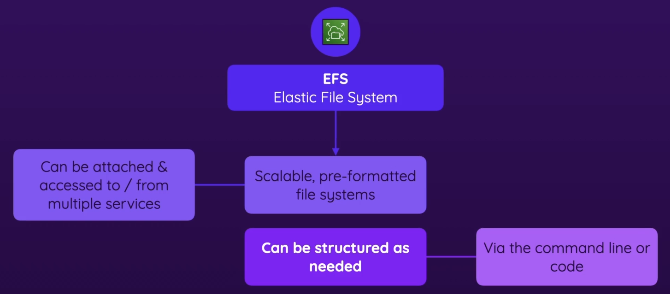- diagram

- Features
- We also get a hard drive, but we don’t care about the actual configs
- Think of it like a shared folder in the cloud that multiple computers (EC2 instances) can read and write to simultaneously.
- We get a scalable pre-formatted file system, which uses hard drives under the hood
- We can structure the file system as we need (via cmd or code)
- Ex. we can create a file system in the EC2 instance
- Not limited to EC2 instances unlike EBS (Elastic Block Store)
- can be used with multiple services
- X work alone
- A regional service
- Scaling
- Built to scale automatically
- Config
- A file system is an identity
- Which type of application workload the file system should be optimized for (read/write, writing big files, throughput, etc)
- You don’t choose any size/scaling settings (it scales automatically!)
- Encryption option - how the files should be encrypted automatically
- network access for the file system - which VPC it belongs + which subnets it should be able to reach (useful if ur running instances in specific subnets) + security groups
- access policy
- which kind of data can be written into this file system
- Resources
